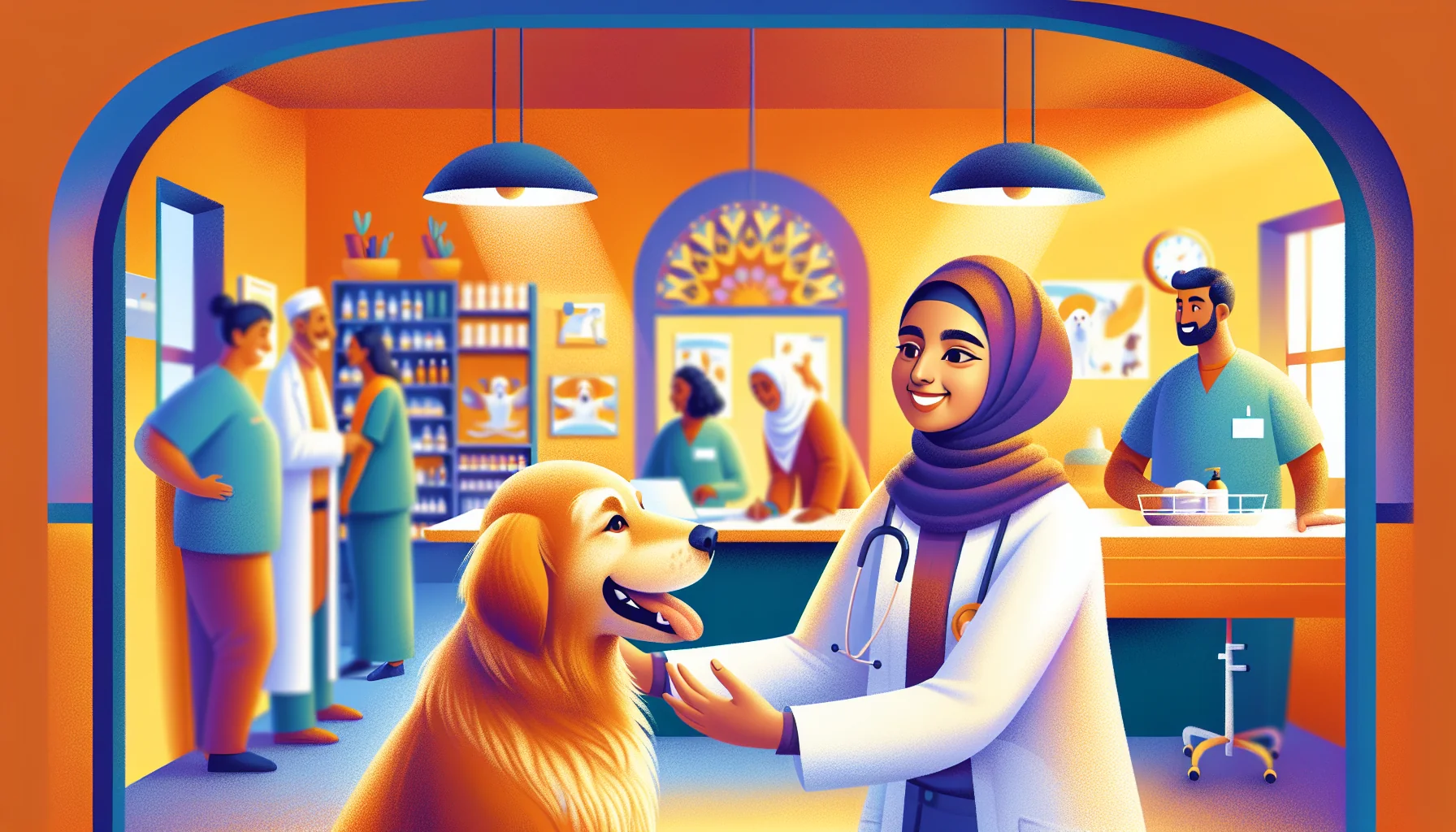
In addition to preventative care, these visits strengthen the bond between pet and owner, as they create an opportunity to discuss behavioral concerns and nutritional needs with a trained professional. Whether it’s a puppy’s first set of vaccinations or addressing age-related issues in a senior dog, each visit contributes to the overall well-being of your pet. It’s not just about vaccines; it’s about creating a comprehensive health plan tailored to your pet’s unique needs.
Periodic vet visits are also an excellent opportunity for education. Vets can provide insights into dental care, weight management, and preventive treatments for parasites, helping you make informed choices for your pet’s lifestyle. With the right guidance, you can take proactive steps to prevent common health issues, ensuring your furry friend stays fit and happy.
When considering the long-term health of your pets, those regular vet visits can serve as a safety net, identifying issues before they escalate. The earlier problems are detected, the easier they often are to treat, leading to more positive outcomes. Prioritizing these appointments ultimately pays off, contributing to a fuller, more vibrant life for your pet.
Understanding the Benefits of Routine Check-Ups
Routine check-ups offer an array of benefits that go beyond just vaccinations and examinations. For one, they provide a consistent opportunity for your veterinarian to assess your pet’s overall health and detect any changes over time. These visits create a continual health record, which is particularly useful for identifying trends related to weight, behavior, and physical condition. For instance, a sudden weight gain or loss might signal an underlying health issue, and catching that at a routine visit can lead to timely interventions.
Moreover, regular vet visits can help establish a strong foundation for preventive care. Many serious conditions, such as diabetes or kidney disease, can develop gradually, making early detection crucial. During these appointments, vets might perform lab tests that can uncover issues even before any symptoms arise. This proactive approach means that treatment plans can be tailored to your pet’s specific needs right from the start.
Additionally, the familiarity of regular vet visits can reduce anxiety for your pet. Frequent exposure to the veterinary clinic helps pets acclimate, making each visit less stressful. This is particularly important for young animals, as positive experiences can help shape their behavior around vet visits throughout their lives. Knowing that the vet is a safe space can make future appointments smoother for both you and your pet.
Lastly, these visits foster a collaborative relationship between you and your vet. Having regular conversations about your pet’s health not only keeps you informed but also gives you the chance to voice any concerns. Whether discussing behavioral changes, dietary adjustments, or even specialized care for chronic conditions, this ongoing dialogue is vital. A veterinarian who knows your pet well can provide tailored advice and recommendations that align with your pet’s health goals.
Common Health Issues Detected During Vet Visits
During vet visits, a number of common health issues can be detected early, significantly improving outcomes for pets. One prevalent concern is obesity, a hidden epidemic among our furry friends. Many pet owners might not realize their animal is overweight until the vet notes it during a check-up. Excess weight can lead to various health problems, including diabetes, joint issues, and heart disease. The veterinarian can then provide guidance on diet and exercise tailored specifically for your pet, putting them on a road to a healthier weight.
Another crucial area of focus during these visits is dental health. Many pets experience dental disease as they age, yet it often goes unnoticed until it becomes severe. During a routine check-up, vets can examine your pet’s mouth for signs of gum disease or other dental issues. Catching these problems early means not only a happier pet but avoids the complications and discomfort associated with advanced dental disease.
Skin conditions and allergies are also frequently identified during vet visits. Pets often scratch, chew, or develop irritations, which can lead to infections if left untreated. A vet’s keen eye can discern whether these symptoms result from allergies, parasites, or something else entirely, enabling timely interventions such as medication or changes in diet.
Lastly, visiting the vet regularly can help catch more serious conditions such as tumors or organ dysfunction. Many pets might display subtle signs of illness that owners may overlook. A vet conducting a thorough exam, paired with laboratory tests when necessary, can detect abnormalities that signal larger issues. Early detection of these problems often leads to more effective treatment options, less invasive procedures, and ultimately, better quality of life for your pet.
Ultimately, being proactive during vet visits allows you to monitor your pet’s health closely, paving the way for a longer, healthier life. Addressing these common health issues promptly ensures that your four-legged companions remain full of energy and spirit, enjoying every moment with you.
How to Prepare for Your Pet’s Veterinary Appointment
Preparing for your pet’s veterinary appointment may seem straightforward, but a little forethought can make a significant difference in the experience for both you and your furry friend. Start by ensuring you have all necessary information at hand. It’s wise to gather details about your pet’s health history, including vaccination records, any past illnesses, and medications currently being given. This helps the veterinarian create a comprehensive picture of your pet’s health and tailor their care effectively.
Consider jotting down any specific concerns or observations you’ve made about your pet’s behavior, eating habits, or physical condition. If your pet has been acting differently – maybe they’re more lethargic than usual or have developed a new habit – noting these changes will help provide valuable insights for the vet. The more information you supply, the easier it becomes for the veterinarian to assess what might be affecting your pet.
Transporting your pets can be another element to think about. If your pet tends to get anxious during car rides, you might want to prepare them in advance. A familiar blanket, their favorite toy, or even some calming pheromone spray can help ease their nerves. Acclimating your pet to their carrier or a harness when heading to the clinic can also make a big difference on appointment day.
When it comes to scheduling, try to set an appointment when you can dedicate time to the visit. Arriving at the clinic without the rush of tight schedules can help keep both you and your pet calm. If your pet gets anxious, it might be helpful to have someone along to hold or comfort them while you gather any information for the vet.
Remember to keep an eye on any potential changes in your pet’s routine leading up to the visit. Eating less, excessive grooming, or changes in bathroom habits can all be signs that warrant discussion with the vet. With a little preparation, vet visits can transform from mere check-ups into invaluable opportunities for detecting and addressing health concerns early, ensuring that your pets stay happy and healthy.

